O cuntadinu sutta lu zappuni
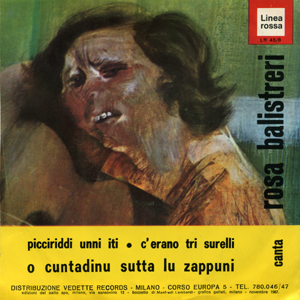
O cuntadinu sutta lu zappuni,
(Continues)
(Continues)
Contributed by giorgio 2010/4/3 - 16:15
Song Itineraries:
The War of Labour: Emigration, Immigration, Exploitation, Slavery
Le Jour de l'Évasion

Le Jour de l'Évasion
Le Jour de l'Évasion – Marco Valdo M.I. – 2010
Cycle du Cahier ligné – 102
Le Jour de l'Évasion est la cent-deuxième chanson du Cycle du Cahier ligné, constitué d'éléments tirés du Quaderno a Cancelli de Carlo Levi.
Tu vois, Lucien l'âne épris de liberté, c'est une manie des hommes d'inventer des jours consacrés tantôt aux dieux, tantôt aux grands événements de leur histoire, tantôt à des moments de la vie... Il y a ainsi toute une série de jours, de journées ou de fêtes, c'est selon : la journée des femmes, le jour des morts, la fête des mères, des pères, des moissons, la journée de l'eau, la fête des travailleurs... et bien d'autres encore, on en invente tous les jours. Alors, notre ami le songeur a eu l'idée d'une fête de l'évasion, une journée de l'évasion, un carnaval des prisons... Où tous les prisonniers, tous les gens que la vie oppresse comme avant un orage... (Continues)
Le Jour de l'Évasion – Marco Valdo M.I. – 2010
Cycle du Cahier ligné – 102
Le Jour de l'Évasion est la cent-deuxième chanson du Cycle du Cahier ligné, constitué d'éléments tirés du Quaderno a Cancelli de Carlo Levi.
Tu vois, Lucien l'âne épris de liberté, c'est une manie des hommes d'inventer des jours consacrés tantôt aux dieux, tantôt aux grands événements de leur histoire, tantôt à des moments de la vie... Il y a ainsi toute une série de jours, de journées ou de fêtes, c'est selon : la journée des femmes, le jour des morts, la fête des mères, des pères, des moissons, la journée de l'eau, la fête des travailleurs... et bien d'autres encore, on en invente tous les jours. Alors, notre ami le songeur a eu l'idée d'une fête de l'évasion, une journée de l'évasion, un carnaval des prisons... Où tous les prisonniers, tous les gens que la vie oppresse comme avant un orage... (Continues)
C'est le jour de l'évasion
(Continues)
(Continues)
Contributed by Marco Valdo M.I. 2010/4/3 - 12:00
Song Itineraries:
From World Jails
Bravi ragazzi

Chanson italienne – Bravi Ragazzi – Edoardo Bennato – 1974
BRAVES GARS
(Continues)
(Continues)
Contributed by Marco Valdo M.I. 2010/4/3 - 11:25
Maria la stava in casa (La passione)

"La Maria generalmente divulgata è una creatura piena di grazia, più dea che donna. Nei canti popolari Maria è invece piena di umanità, non la Regina dei Cieli ma una tenera, spaesata, angosciata madre terrena."
(dalle note di copertina del disco "Sopra i tetti di Firenze" omaggio a Caterina Bueno, di Riccardo Tesi & Maurizio Geri)
(dalle note di copertina del disco "Sopra i tetti di Firenze" omaggio a Caterina Bueno, di Riccardo Tesi & Maurizio Geri)
Maria la stava in casa e non sapeva
(Continues)
(Continues)
Contributed by Lorenzo 2010/4/3 - 11:23
Song Itineraries:
Death penalty: murder by the power
Masters Of War
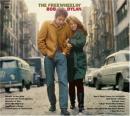
SPAGNOLO / SPANISH [4]
SEÑORES DE LA GUERRA
(Continues)
(Continues)
Contributed by giorgio 2010/4/3 - 10:20
Health of Freedom
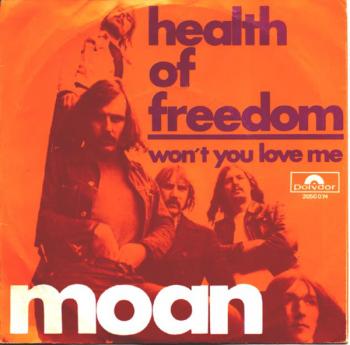
[1971]
Album: Top 40 1971 - Week 07
Album: Top 40 1971 - Week 07
Come on, let's drink to the health of freedom in this world
(Continues)
(Continues)
Contributed by giorgio 2010/4/3 - 09:46
Ir Disertore

Ahahahah!
Attualissima. Sarebbe divertente, se non fosse che c'è da piangere per la situazione.
Ho anche provato a canticchiarla sull'aria dell'originale, ma credo di aver cannato tutti gli accenti. In ogni caso, la canzone è magnifica e irriverente. Mi è piaciuta soprattutto l'ultima parte, quella della mitraglia e del supermercato, ma quella della mamma alcolista mi ha fatto, purtroppo, scompisciare. Un salutone!
Attualissima. Sarebbe divertente, se non fosse che c'è da piangere per la situazione.
Ho anche provato a canticchiarla sull'aria dell'originale, ma credo di aver cannato tutti gli accenti. In ogni caso, la canzone è magnifica e irriverente. Mi è piaciuta soprattutto l'ultima parte, quella della mitraglia e del supermercato, ma quella della mamma alcolista mi ha fatto, purtroppo, scompisciare. Un salutone!
Federica 2010/4/3 - 01:46
Little Wheel Spin and Spin

[1966]
Album "Little Wheel Spin and Spin"
Album "Little Wheel Spin and Spin"
Little Wheels Spin and Spin Big wheels turn around & around
(Continues)
(Continues)
Contributed by Alessandro 2010/4/2 - 14:25
The Times I've Had
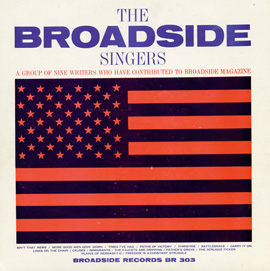
[1964]
Album “Broadside Ballads, Vol. 3: The Broadside Singers”, Folkways Records.
“The Broadside Singers” è stato un super-gruppo composto da alcuni dei songwriters che negli anni 60 e 70 furono tra i maggiori contributori della rivista “Broadside Magazine”, tra i quali Phil Ochs, Tom Paxton, Pete Seeger, Mark Spoelstra, Patrick Sky, Malvina Reynolds, Bob Dylan e Buffy Sainte-Marie…
In questo brano, l’autore Mark Spoelstra è accompagnato da Phil Ochs, voce e chitarra, e da Pete Seeger, banjo.
“This antiwar song was recorded in a Broadside Singers session with Phil Ochs leading the group. The song was written by Mark Spoelstra, who recalls this as one of his early compositions. He remembered traveling to Ohio for a concert with Rambling Jack Elliott. On the way back, they stopped for refreshments and ran across a group of young men in army fatigues talking about how they could not wait... (Continues)
Album “Broadside Ballads, Vol. 3: The Broadside Singers”, Folkways Records.
“The Broadside Singers” è stato un super-gruppo composto da alcuni dei songwriters che negli anni 60 e 70 furono tra i maggiori contributori della rivista “Broadside Magazine”, tra i quali Phil Ochs, Tom Paxton, Pete Seeger, Mark Spoelstra, Patrick Sky, Malvina Reynolds, Bob Dylan e Buffy Sainte-Marie…
In questo brano, l’autore Mark Spoelstra è accompagnato da Phil Ochs, voce e chitarra, e da Pete Seeger, banjo.
“This antiwar song was recorded in a Broadside Singers session with Phil Ochs leading the group. The song was written by Mark Spoelstra, who recalls this as one of his early compositions. He remembered traveling to Ohio for a concert with Rambling Jack Elliott. On the way back, they stopped for refreshments and ran across a group of young men in army fatigues talking about how they could not wait... (Continues)
Let me tell you 'bout the times I've had
(Continues)
(Continues)
Contributed by Alessandro 2010/4/2 - 13:35
What's That I Hear

[1964]
Album “All the News That's Fit to Sing”.
Album “All the News That's Fit to Sing”.
What's that I hear now ringing in my ear
(Continues)
(Continues)
Contributed by Alessandro 2010/4/2 - 13:06
Bound For Glory

He walked all over his own growin' land
(Continues)
(Continues)
Contributed by Alessandro 2010/4/2 - 13:01
Lou Marsh

[1964]
Album “All the News That's Fit to Sing”.
Louis Marsh was born and brought up in a tough neighbourhood of North Philadelphia. Unlike so many others however, Lou and his brothers were able to escape the ghetto and went to University before taking up careers perhaps atypical of those from such a background. Until being diagnosed with epilepsy Lou trained to be a doctor. Instead he began studying Sociology at Yale before training to join the Ministry. Unhappy with the rigidity of formal religion Lou took up full-time the youth work that was among his ministerial duties.
In 1958 he took part in an exchange programme with the U.S.S.R, learning how differences between nationalities and races could be overcome. Upon returning to the U.S. Lou began working for the Youth Board in New York City, assigned to work with the Young Untouchables, a Puerto Rican street gang from East Harlem. Lou... (Continues)
Album “All the News That's Fit to Sing”.
Louis Marsh was born and brought up in a tough neighbourhood of North Philadelphia. Unlike so many others however, Lou and his brothers were able to escape the ghetto and went to University before taking up careers perhaps atypical of those from such a background. Until being diagnosed with epilepsy Lou trained to be a doctor. Instead he began studying Sociology at Yale before training to join the Ministry. Unhappy with the rigidity of formal religion Lou took up full-time the youth work that was among his ministerial duties.
In 1958 he took part in an exchange programme with the U.S.S.R, learning how differences between nationalities and races could be overcome. Upon returning to the U.S. Lou began working for the Youth Board in New York City, assigned to work with the Young Untouchables, a Puerto Rican street gang from East Harlem. Lou... (Continues)
On the streets of New York city when the hour was getting late
(Continues)
(Continues)
Contributed by Alessandro 2010/4/2 - 11:46
Yugo 45

questa canzone è spettacolare, mi spiace solo di non conoscere la lingua!
chiara 2010/4/2 - 11:44
William Moore The Mailman
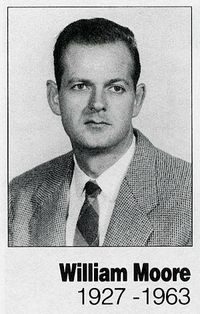
[1963]
Words by Seymour Farber
Music by Pete Seeger
Album “Broadside Ballads, Vol. 2”, Folkways Records
Sulla storia del coraggioso postino che fu ammazzato mentre camminava da solo per l’America profonda, consegnando lettere contro la segregazione razziale, si vedano anche Die Ballade von dem Briefträger William L. Moore aus Baltimore, der im Jahre 63 allein in die Südstaaten wanderte. Er protestierte gegen die Verfolgung der Neger. Er wurde erschossen nach einer Woche. Drei Kugeln trafen seine Stirn. e William Moore.
Words by Seymour Farber
Music by Pete Seeger
Album “Broadside Ballads, Vol. 2”, Folkways Records
Sulla storia del coraggioso postino che fu ammazzato mentre camminava da solo per l’America profonda, consegnando lettere contro la segregazione razziale, si vedano anche Die Ballade von dem Briefträger William L. Moore aus Baltimore, der im Jahre 63 allein in die Südstaaten wanderte. Er protestierte gegen die Verfolgung der Neger. Er wurde erschossen nach einer Woche. Drei Kugeln trafen seine Stirn. e William Moore.
William Moore you were a mailman,
(Continues)
(Continues)
Contributed by Alessandro 2010/4/2 - 11:29
William Moore
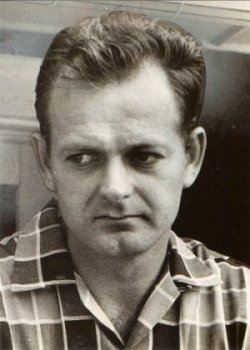
[1963]
Dall’album compilativo “A Toast to Those Who Are Gone”, 1986.
Su William Moore si veda anche la canzone Die Ballade von dem Briefträger William L. Moore aus Baltimore, der im Jahre 63 allein in die Südstaaten wanderte. Er protestierte gegen die Verfolgung der Neger. Er wurde erschossen nach einer Woche. Drei Kugeln trafen seine Stirn. di Wolf Biermann.
William Moore era un postino. Era un bianco, ma faceva parte del CORE, il Congress of Racial Equality, una delle più attive organizzazioni anti-razziste e anti-segregazioniste americane, nata negli anni 40.
William Moore era un postino, e il suo mestiere era quello di recapitare la posta.
Così un bel giorno decise di mettersi in cammino per recapitare lettere di protesta contro la segregazione razziale… Nella sua prima marcia, dal Maryland andò a piedi fino alla Casa Bianca per recapitare al presidente Kennedy una lettera in cui... (Continues)
Dall’album compilativo “A Toast to Those Who Are Gone”, 1986.
Su William Moore si veda anche la canzone Die Ballade von dem Briefträger William L. Moore aus Baltimore, der im Jahre 63 allein in die Südstaaten wanderte. Er protestierte gegen die Verfolgung der Neger. Er wurde erschossen nach einer Woche. Drei Kugeln trafen seine Stirn. di Wolf Biermann.
William Moore era un postino. Era un bianco, ma faceva parte del CORE, il Congress of Racial Equality, una delle più attive organizzazioni anti-razziste e anti-segregazioniste americane, nata negli anni 40.
William Moore era un postino, e il suo mestiere era quello di recapitare la posta.
Così un bel giorno decise di mettersi in cammino per recapitare lettere di protesta contro la segregazione razziale… Nella sua prima marcia, dal Maryland andò a piedi fino alla Casa Bianca per recapitare al presidente Kennedy una lettera in cui... (Continues)
Walkin' down an Alabama road
(Continues)
(Continues)
Contributed by Alessandro 2010/4/2 - 10:46
Song Itineraries:
Racism and Slavery in the USA
Letter from North Vietnam
Norman A. Ross

[1967]
Testo trovato su “Broadside Magazine”, n. 86 del novembre 1967
Testo trovato su “Broadside Magazine”, n. 86 del novembre 1967
The bombers come all day, the bombers come all night,
(Continues)
(Continues)
Contributed by Alessandro 2010/4/2 - 09:35
Song Itineraries:
War in Viet Nam as seen from the U.S.
Acceptable Risks

Immagini di soldati americani esposti al fallout radioattivo durante i "Nevada Proving Grounds", gli esperimenti nucleari condotti dall'esercito USA nei primi anni 50 nel deserto del Nevada:
Alessandro 2010/4/2 - 08:30
Give Peace A Chance

DEMOS UNA OPORTUNIDAD A LA PAZ
(Continues)
(Continues)
Contributed by giorgio 2010/4/2 - 08:08
Chiapas resiste
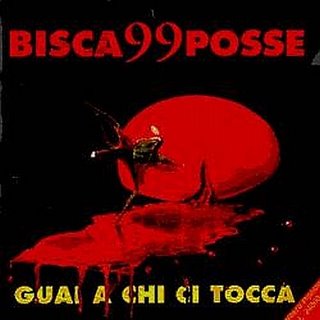
1995
Guai a chi ci tocca
Disco del supergruppo nato dalla fusione (temporanea) dei Bisca con i 99 Posse
Guai a chi ci tocca
Disco del supergruppo nato dalla fusione (temporanea) dei Bisca con i 99 Posse
Il 1 gennaio 1994 l'Esercito Zapatista di Liberazione Nazionale (EZNL) insorge nello stato del Chiapas, sud est del Messico, occupando i comuni di San Cristobal de Las Casas, Ocosigo, Altamirano ed altri. L'intervento dell'esercito federale è immediato e brutale. Bombardamenti, killeraggi, torture, arresti arbitrari. Dopo soli dodici giorni, grazie anche alle imponenti manifestazioni svoltesi a Città del Messico contro le repressioni dell'esercito, il governo messicano è costretto a concordare una tregua. Da allora l'EZLN ha svolto un ruolo politico di primo piano: le sue richieste sono le richieste non solo della popolazione indigena del Chiapas, ma di tutto il popolo messicano. Migliori condizioni di vita, case, lavoro, assistenza sanitaria, educazione e soprattutto libertà, democrazia e g... (Continues)
Contributed by DonQuijote82 2010/4/1 - 22:20
Si può morire
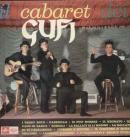
Version française – ON PEUT MOURIR – Marco Valdo M.I. – 2010
Chanson italienne – Si può morire – Gufi – 1963
Chanson italienne – Si può morire – Gufi – 1963
ON PEUT MOURIR
(Continues)
(Continues)
Contributed by Marco Valdo M.I. 2010/4/1 - 22:06
Le déserteur

SPAGNOLO / SPANISH / ESPAGNOL [7]
EL DESERTOR
(Continues)
(Continues)
Contributed by giorgio 2010/4/1 - 20:06
Blowin' in the Wind

SICILIANO / SICILIAN
'A RISPOSTA STA BULÀNNU CU VENTU
(Continues)
(Continues)
Contributed by giorgio 2010/4/1 - 19:56
Santo Dominico
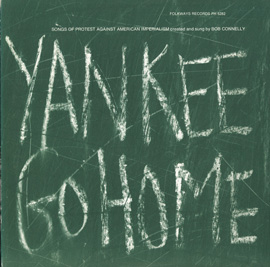
[1975]
Album “Yankee Go Home: Songs of Protest Against American Imperialism”, Folkways Records.
Alla fine dell’800 l’economia della piccola repubblica di Santo Domingo andò letteralmente dal culo a causa del solito dittatorucolo di turno, il generale Ulises “Lilís” Heureaux, che aveva indebitato fino al collo il paese facendosi imprestare dalle banche europee un sacco di soldi che poi spendeva per sé e la sua corte… Il generale fu poi ammazzato ma intanto alcune navi da guerra francesi, tedesche, olandesi e pure italiane navigavano verso l’isola con l’intenzione di “curarne il fallimento” e riprendersi se possibile i soldi… Ma il presidente Roosevelt disse che non era cosa, che ci avrebbero pensato gli USA a onorare i debiti dominicani e che gli europei se ne stessero alla larga dal “giardino di casa” statunitense… E così, dopo Cuba, Filippine e Panama, gli yankee si mangiarono pure Santo... (Continues)
Album “Yankee Go Home: Songs of Protest Against American Imperialism”, Folkways Records.
Alla fine dell’800 l’economia della piccola repubblica di Santo Domingo andò letteralmente dal culo a causa del solito dittatorucolo di turno, il generale Ulises “Lilís” Heureaux, che aveva indebitato fino al collo il paese facendosi imprestare dalle banche europee un sacco di soldi che poi spendeva per sé e la sua corte… Il generale fu poi ammazzato ma intanto alcune navi da guerra francesi, tedesche, olandesi e pure italiane navigavano verso l’isola con l’intenzione di “curarne il fallimento” e riprendersi se possibile i soldi… Ma il presidente Roosevelt disse che non era cosa, che ci avrebbero pensato gli USA a onorare i debiti dominicani e che gli europei se ne stessero alla larga dal “giardino di casa” statunitense… E così, dopo Cuba, Filippine e Panama, gli yankee si mangiarono pure Santo... (Continues)
Santo Dominico,
(Continues)
(Continues)
Contributed by Alessandro 2010/4/1 - 14:45
I Took the Great Canal
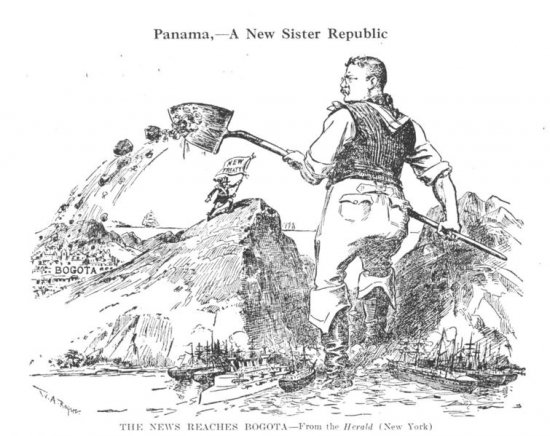
[1975]
Album “Yankee Go Home: Songs of Protest Against American Imperialism”, Folkways Records.
Dopo Cuba e le Filippine, nel 1903 i voraci yankee guidati dal condottiero Teddy Roosevelt e dal segretario di Stato John Milton Hay si papparono pure Panama, sottraendola alla sovranità colombiana. La comprarono dalle banche francesi (rappresentate dal lobbista Philippe Bunau-Varilla) che a partire dal 1889 avevano investito ingenti capitali in un’impresa che si era rivelata difficile e rischiosa: la costruzione di un transito navale tra Atlantico e Pacifico. Roosevelt comprò Panama dai francesi per 40 milioni di dollari, risparmiò il denaro promesso alla Colombia - e da questa rifiutato – fomentando la rivolta dei panamensi per l’indipendenza, e poi i genieri dell’esercito completarono in soli 10 anni il Canale avviato dai francesi… un investimento davvero vantaggioso che nei decenni successivi... (Continues)
Album “Yankee Go Home: Songs of Protest Against American Imperialism”, Folkways Records.
Dopo Cuba e le Filippine, nel 1903 i voraci yankee guidati dal condottiero Teddy Roosevelt e dal segretario di Stato John Milton Hay si papparono pure Panama, sottraendola alla sovranità colombiana. La comprarono dalle banche francesi (rappresentate dal lobbista Philippe Bunau-Varilla) che a partire dal 1889 avevano investito ingenti capitali in un’impresa che si era rivelata difficile e rischiosa: la costruzione di un transito navale tra Atlantico e Pacifico. Roosevelt comprò Panama dai francesi per 40 milioni di dollari, risparmiò il denaro promesso alla Colombia - e da questa rifiutato – fomentando la rivolta dei panamensi per l’indipendenza, e poi i genieri dell’esercito completarono in soli 10 anni il Canale avviato dai francesi… un investimento davvero vantaggioso che nei decenni successivi... (Continues)
Hey, there's something you want,
(Continues)
(Continues)
Contributed by Alessandro 2010/4/1 - 14:14
Little Brown Children
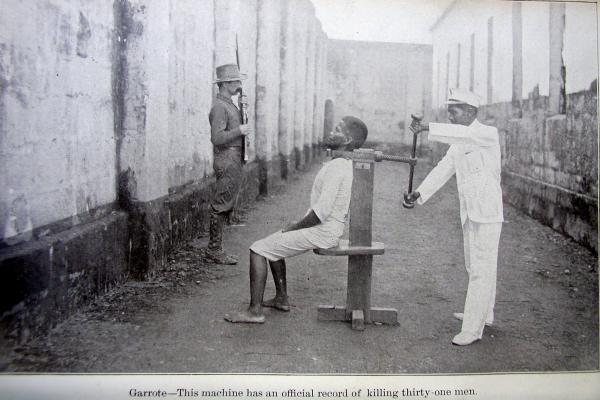
[1975]
Album “Yankee Go Home: Songs of Protest Against American Imperialism”, Folkways Records.
Una canzone sulla guerra filippino-americana del 1899-1902 (ma trascinatasi per oltre dieci anni, fino al 1913), che fa il paio con Ewell T. Otis.
“The United States did not stumble into the Philippine insurrection of 1899-l902. Before annexation took place there was a long debate within the United States on whether or not it should happen. Those opposed to annexation formed what became known as the "Anti-Imperialist League" which included such men as Grover Cleveland, Samuel Gompers, Andrew Carnegie, William Dean Howells and Mark Twain. They argued that annexation was a violation of the Declaration of Independence; that there should be no goverment without the consent of the governed. They further argued that Asiatic people could not be assimilated into American culture and tradition,... (Continues)
Album “Yankee Go Home: Songs of Protest Against American Imperialism”, Folkways Records.
Una canzone sulla guerra filippino-americana del 1899-1902 (ma trascinatasi per oltre dieci anni, fino al 1913), che fa il paio con Ewell T. Otis.
“The United States did not stumble into the Philippine insurrection of 1899-l902. Before annexation took place there was a long debate within the United States on whether or not it should happen. Those opposed to annexation formed what became known as the "Anti-Imperialist League" which included such men as Grover Cleveland, Samuel Gompers, Andrew Carnegie, William Dean Howells and Mark Twain. They argued that annexation was a violation of the Declaration of Independence; that there should be no goverment without the consent of the governed. They further argued that Asiatic people could not be assimilated into American culture and tradition,... (Continues)
Little Brown Brothers, please throw down your arms,
(Continues)
(Continues)
Contributed by Alessandro 2010/4/1 - 12:28
Ewell T. Otis
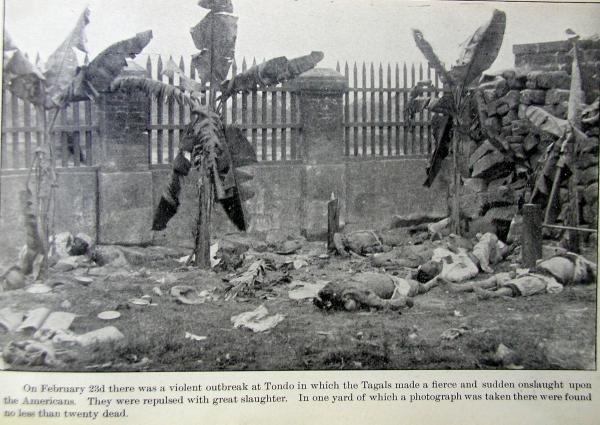
[1975]
Album “Yankee Go Home: Songs of Protest Against American Imperialism”, Folkways Records.
Filippine, 1900. Massacro ad opera delle truppe statunitensi
Spazzati via i vecchi dominatori spagnoli, il presidente statunitense McKinley proclamò la “Benevolent Assimilation” delle Filippine… “Benevolent” una cippa! I filippini indipendentisti, riuniti nell’organizzazione segreta Katipunan e guidati dal leader Emilio Aguinaldo, avevano già combattuto gli spagnoli e si misero, giustamente, a combattere i nuovi padroni… I “benevolenti” americani li fecero letteralmente a pezzi e proprio nella guerra di “contrainsurgencia” nelle Filippine i generali americani, come Ewell Otis, perfezionarono strategie come il “search & destroy”, cioè l’annientamento di interi villaggi e della relativa popolazione civile, poi divenute note all’opinione pubblica durante la guerra in Vietnam e i conflitti... (Continues)
Album “Yankee Go Home: Songs of Protest Against American Imperialism”, Folkways Records.
Filippine, 1900. Massacro ad opera delle truppe statunitensi
Spazzati via i vecchi dominatori spagnoli, il presidente statunitense McKinley proclamò la “Benevolent Assimilation” delle Filippine… “Benevolent” una cippa! I filippini indipendentisti, riuniti nell’organizzazione segreta Katipunan e guidati dal leader Emilio Aguinaldo, avevano già combattuto gli spagnoli e si misero, giustamente, a combattere i nuovi padroni… I “benevolenti” americani li fecero letteralmente a pezzi e proprio nella guerra di “contrainsurgencia” nelle Filippine i generali americani, come Ewell Otis, perfezionarono strategie come il “search & destroy”, cioè l’annientamento di interi villaggi e della relativa popolazione civile, poi divenute note all’opinione pubblica durante la guerra in Vietnam e i conflitti... (Continues)
Let us not forget the name,
(Continues)
(Continues)
Contributed by Alessandro 2010/4/1 - 10:57
Lequi of the National Guard

[1975]
Album “Yankee Go Home: Songs of Protest Against American Imperialism”, Folkways Records.
La guerra ispano-americana del 1898 per il possesso delle Filippine e di Cuba non fu una guerra combattuta. La vecchia e spelacchiata flotta spagnola fu catturata tutta intera, senza colpo ferire, nel golfo di Manila… A Cuba, l’unica azione militare vera e propria fu quella dei “Rough Riders” di Teddy Roosevelt nell’assalto alla collina di San Juan… E su questo episodio Roosevelt fondò le basi per la sua corsa alla Casa Bianca, anche se molti storici si sono chiesti come diavolo abbia potuto lui, miope come una talpa e con gli occhiali rotti - come si vede nelle foto - condurre un assalto… La maggior parte dei decessi fra i soldati yankee non fu dovuta al fuoco nemico ma alla carne guasta che mangiavano…
“The Spanish-American War was not a war noted for great military strategy nor great military... (Continues)
Album “Yankee Go Home: Songs of Protest Against American Imperialism”, Folkways Records.
La guerra ispano-americana del 1898 per il possesso delle Filippine e di Cuba non fu una guerra combattuta. La vecchia e spelacchiata flotta spagnola fu catturata tutta intera, senza colpo ferire, nel golfo di Manila… A Cuba, l’unica azione militare vera e propria fu quella dei “Rough Riders” di Teddy Roosevelt nell’assalto alla collina di San Juan… E su questo episodio Roosevelt fondò le basi per la sua corsa alla Casa Bianca, anche se molti storici si sono chiesti come diavolo abbia potuto lui, miope come una talpa e con gli occhiali rotti - come si vede nelle foto - condurre un assalto… La maggior parte dei decessi fra i soldati yankee non fu dovuta al fuoco nemico ma alla carne guasta che mangiavano…
“The Spanish-American War was not a war noted for great military strategy nor great military... (Continues)
My name is Colonel Lequi,
(Continues)
(Continues)
Contributed by Alessandro 2010/4/1 - 09:58
Me queda la palabra

Adaptación: Los Aguaviva
[1971]
Letra: Adaptación de un poema de Blas de Otero (1955)
Música: Manolo Díaz
Recitador: José Antonio Muñoz
Album: Apocalipsis
[1971]
Letra: Adaptación de un poema de Blas de Otero (1955)
Música: Manolo Díaz
Recitador: José Antonio Muñoz
Album: Apocalipsis
"El que monta el caballo pálido se llama la muerte
(Continues)
(Continues)
Contributed by giorgio 2010/4/1 - 08:34
Bouse séchée

Bouse séchée
Bouse séchée – Marco Valdo M.I. – 2010
Cycle du Cahier ligné – 101
Bouse séchée est la cent et unième chanson du Cycle du Cahier ligné, constitué d'éléments tirés du Quaderno a Cancelli de Carlo Levi.
Excuse-moi, Marco Valdo M.I. mon ami, mais je trouve encore une fois que le titre de ta canzone est bien étrange.
Lucien l'âne aux grandes dents et aux sabots d'ébène, laisse-moi te dire le pourquoi du comment de ce titre étrange en effet. Le fait est que lorsque je fais une chanson, je ne sais généralement pas au départ comment elle sera, quels seront les mots qui la composeront, ni dans quel ordre, ni dans quelle combinaison. Le sens-même de la chanson change parfois au cours de la confection. La chanson – et cela tu le sais – est une sorte d'étrange alchimie, c'est une création, elle est (souvent) expérimentale. Quelquefois, elle démarre sur un mot, quelque fois sur une... (Continues)
Bouse séchée – Marco Valdo M.I. – 2010
Cycle du Cahier ligné – 101
Bouse séchée est la cent et unième chanson du Cycle du Cahier ligné, constitué d'éléments tirés du Quaderno a Cancelli de Carlo Levi.
Excuse-moi, Marco Valdo M.I. mon ami, mais je trouve encore une fois que le titre de ta canzone est bien étrange.
Lucien l'âne aux grandes dents et aux sabots d'ébène, laisse-moi te dire le pourquoi du comment de ce titre étrange en effet. Le fait est que lorsque je fais une chanson, je ne sais généralement pas au départ comment elle sera, quels seront les mots qui la composeront, ni dans quel ordre, ni dans quelle combinaison. Le sens-même de la chanson change parfois au cours de la confection. La chanson – et cela tu le sais – est une sorte d'étrange alchimie, c'est une création, elle est (souvent) expérimentale. Quelquefois, elle démarre sur un mot, quelque fois sur une... (Continues)
Je gis ici
(Continues)
(Continues)
Contributed by Marco Valdo M.I. 2010/3/31 - 22:05
Imagine

SPAGNOLO / SPANISH [3]
Versione spagnola di autore sconosciuto, fatta pervenire da Giorgio
Spanish version by unknown author, contributed by Giorgio
Versión castellana de autor desconocido, contribuida por Giorgio
Spanish version by unknown author, contributed by Giorgio
Versión castellana de autor desconocido, contribuida por Giorgio
IMAGINA
(Continues)
(Continues)
Contributed by giorgio 2010/3/31 - 21:13
Calle Mayor

[1996]
Letra y música de Carlos Javier Crespo Goñi
Album: Calle Mayor
Letra y música de Carlos Javier Crespo Goñi
Album: Calle Mayor
La riada de gente es tan densa que cuesta trabajo caminar al revés.
(Continues)
(Continues)
Contributed by giorgio 2010/3/31 - 20:46
A desalambrar!

[1969]
Letra y Musica de Daniel Viglietti
Interpretata da Víctor Jara nell'album Pongo en tus manos abiertas
Interpretata dall'autore in Canciones Para Mi America - Le Chant du Monde LDX 7 4362 - 1973
Letra y Musica de Daniel Viglietti
Interpretata da Víctor Jara nell'album Pongo en tus manos abiertas
Interpretata dall'autore in Canciones Para Mi America - Le Chant du Monde LDX 7 4362 - 1973
Yo pregunto a los presentes
(Continues)
(Continues)
Contributed by giorgio 2010/3/31 - 20:02
Olha o Menino

Sono seimila anni che l'uomo vive felice facendo la guerra....!
Ma il ritmo e il resto della canzone mi sembra che dicano il contrario.
Vedete voi. Dall'album "O Bidu – Silêncio no Brooklyn" (del 1967)
Ma il ritmo e il resto della canzone mi sembra che dicano il contrario.
Vedete voi. Dall'album "O Bidu – Silêncio no Brooklyn" (del 1967)
Eu só quero que Deus me ajude
(Continues)
(Continues)
Contributed by Renato Stecca 2010/3/31 - 17:43
Which Side Are You On?
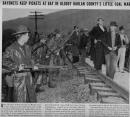
“Which Side Are You On?” is a miner's song written in 1931 in the midst of the bitter struggles of the miners in Harlan County, Kentucky. The mine owners, unyielding in their opposition to any unionization of the workers, carried on a campaign of violence and terror to smash the union. At least a dozen miners were killed by deputies hired by the operators, but none of the deputies were indicted. "Which Side Are You On?" was written during one of the many terroristic raids by the sheriff and his deputies on the miners’ homes. They came to the home of Sam Reece, one of the leaders of the National Miners’ Union, but he had been warned in time and escaped. They poked their shotguns everywhere, under the beds and into the closets, even into the piles of dirty linen, saearching for the miners' leader. When Reece's young daughters, aged 8 and 11, started crying, one of the deputies laughed and said:... (Continues)
Alessandro 2010/3/31 - 14:05
All I Want

[1955]
Album “Talking Union and Other Union Songs”, Folkways Records.
Con Pete Seeger, The Almanac Singers e The Song Swappers
Canzone (nota anche con il diverso titolo di "I Don't Want Your Millions, Mr.") scritta nel 1932 da Jim Garland, un giovane minatore di Harlan County, Kentucky, che l’anno precedente aveva perso, come molti altri, il posto di lavoro perché aveva cercato di organizzarsi in sindacato con i compagni, cosa che la compagnia mineraria aveva provato ad impedire con la forza. Il riferimento storico è lo stesso della più celebre Which Side Are You On?.
Album “Talking Union and Other Union Songs”, Folkways Records.
Con Pete Seeger, The Almanac Singers e The Song Swappers
Canzone (nota anche con il diverso titolo di "I Don't Want Your Millions, Mr.") scritta nel 1932 da Jim Garland, un giovane minatore di Harlan County, Kentucky, che l’anno precedente aveva perso, come molti altri, il posto di lavoro perché aveva cercato di organizzarsi in sindacato con i compagni, cosa che la compagnia mineraria aveva provato ad impedire con la forza. Il riferimento storico è lo stesso della più celebre Which Side Are You On?.
I don't want your millions, mister,
(Continues)
(Continues)
Contributed by Alessandro 2010/3/31 - 14:03
Song Itineraries:
The War of Labour: Emigration, Immigration, Exploitation, Slavery
Pitzinnos in sa gherra

Canzone eccezionale dei tazenda andrea rimarrai x smpr nei nostri cuori ciao ciao
(Asia) 2010/3/31 - 12:59
Welcome In, Hawaii
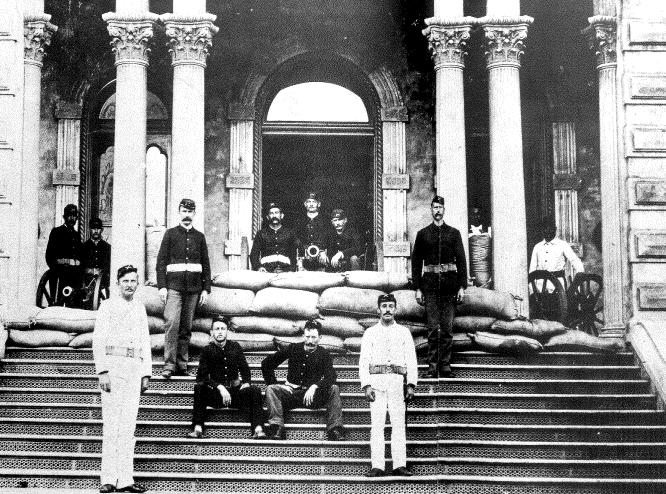
[1975]
Album “Yankee Go Home: Songs of Protest Against American Imperialism”, Folkways Records.
American missionaries, in their zeal to bring the benefits of Christianity to the entire world, first
arrived in Hawaii in the 1830's. They had been preceeded for a number of years by New England whalers, and followed shortly by many businessmen. By 1849, when France appeared on the verge of annexing the Islands, American involvement in Hawaii was so strong that the government of the United States informed the French that it would "Never with indifference allow them to pass under dominion or exclusive control of any other power." By 1854 Secretary of State Marcy negotiated a treaty of annexation with the Hawaiian government, but it was aborted by fierce British opposition.
By 1892, the situation had changed. American investments in the Islands had increased and the price of sugar, Hawail'a... (Continues)
Album “Yankee Go Home: Songs of Protest Against American Imperialism”, Folkways Records.
American missionaries, in their zeal to bring the benefits of Christianity to the entire world, first
arrived in Hawaii in the 1830's. They had been preceeded for a number of years by New England whalers, and followed shortly by many businessmen. By 1849, when France appeared on the verge of annexing the Islands, American involvement in Hawaii was so strong that the government of the United States informed the French that it would "Never with indifference allow them to pass under dominion or exclusive control of any other power." By 1854 Secretary of State Marcy negotiated a treaty of annexation with the Hawaiian government, but it was aborted by fierce British opposition.
By 1892, the situation had changed. American investments in the Islands had increased and the price of sugar, Hawail'a... (Continues)
Welcome in, Hawaii, welcome in,
(Continues)
(Continues)
Contributed by Alessandro 2010/3/31 - 11:53
Il sordo e la leggenda

Chanson italienne – Il sordo e la leggenda – Enzo Maolucci – 2007
LE SOURD ET LA LÉGENDE
(Continues)
(Continues)
Contributed by Marco Valdo M.I. 2010/3/31 - 10:08
Canzone d'Albania

Sbaglio, o la si cantava - almeno in parte - sull'aria di "Partono i bastimenti" ? A me pare di averla sentita così, molti anni fa.
Gian Piero Testa 2010/3/30 - 23:05
Al limite cioè (Ninna nanna per un cane sciolto)

Chanson italienne – Al limite cioè (Ninna nanna per un cane sciolto) – Enzo Maolucci – 1976
À LA LIMITE C'EST-À-DIRE (BERCEUSE POUR UN ÉLECTRON LIBRE)
(Continues)
(Continues)
Contributed by Marco Valdo M.I. 2010/3/30 - 22:08
×
![]()


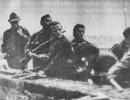


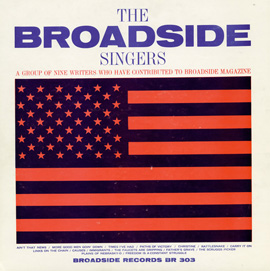
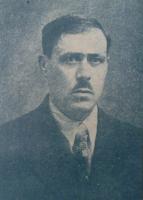

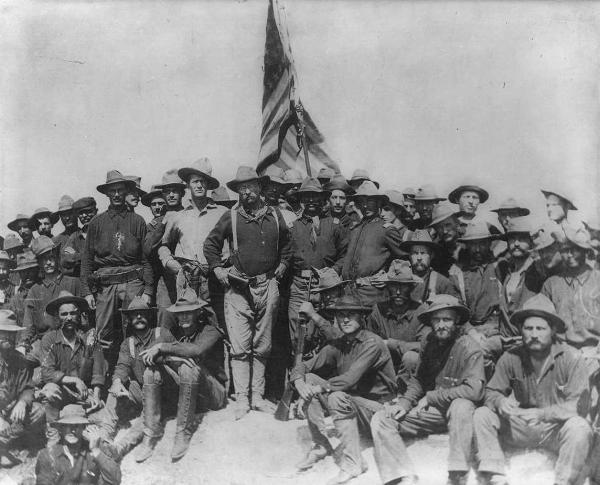


45 giri - Serie Linea Rossa - Dischi del Sole (LR 45/8)